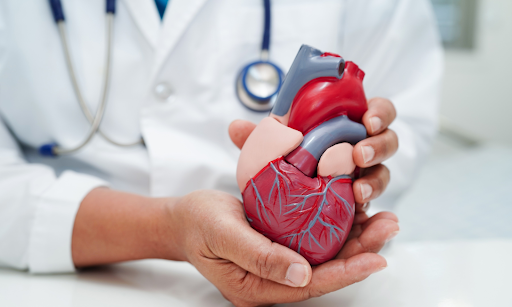How Delhi Hospitals Ensure Safety in Complex Heart Surgeries?
August 29, 2025 | Friday | Features
Heart surgeries are among the most intricate procedures in modern medicine. Whether it’s repairing a valve, bypassing blocked arteries, or replacing a weakened section of the aorta, these surgeries demand the highest level of precision.
For patients and families, safety is always the biggest concern. The good news is that hospitals in Delhi are continuously raising standards by adopting advanced technologies, refining techniques, and building strong post-operative care systems.
If you or a loved one is exploring treatment, knowing how a heart surgery hospital in Delhi prioritises safety can help you feel more confident in making the right decision.
Skilled and Specialised Teams
Behind every successful heart surgery is a team of experts working in perfect sync. At leading hospitals, surgeries are performed by highly trained cardiothoracic surgeons supported by cardiac anaesthesiologists, perfusion technologists, operating theatre nurses, and intensive care specialists. Unlike smaller setups where general anaesthesiologists may be involved, top centres usually have fellowship-trained cardiac anaesthesiologists. This multidisciplinary teamwork ensures that risks are minimised and patient outcomes are improved.
Advanced Operating Theatres
Modern hospitals in Delhi are equipped with state-of-the-art cardiac operating theatres. Essential systems such as the cardiopulmonary bypass machine (CPB) are standard. At the same time, advanced life-support devices like ECMO (extracorporeal membrane oxygenation) are available in select tertiary centres for high-risk or emergency cases. The presence of modular theatres, advanced anaesthesia systems, and real-time monitoring ensures surgeries are carried out in the safest environment possible—something that defines the care at a reputed heart surgery hospital in Delhi.
Minimally Invasive and Beating Heart Surgeries
Safety is further enhanced through surgical approaches that minimise trauma to the body. Minimally invasive cardiac surgeries (MICS) use smaller incisions, leading to less pain, quicker recovery, and a lower risk of infection. Similarly, off-pump coronary artery bypass (OPCAB) enables surgeons to perform bypass procedures on a beating heart without relying on a heart-lung machine, reducing some risks associated with traditional methods.
At centres such as Venkateshwar Hospital, these advanced techniques are employed to optimise patient outcomes and support faster, safer recoveries.
Precision in High-Risk Surgeries
Some of the most challenging procedures include aortic root replacements, ventricular assist device implantation, and redo surgeries. To improve safety, real-time imaging such as transoesophageal echocardiography (TEE) is used in advanced hospitals to guide surgeons during operations. These tools help teams respond quickly if complications arise, improving patient outcomes.
Focus on Vascular and Hybrid Procedures
Cardiac safety also extends to vascular surgeries such as managing aneurysms, carotid artery disease, and complex aortic conditions. Larger Delhi hospitals are increasingly using endovascular and hybrid approaches, which combine surgery with catheter-based techniques. While not yet common for every condition, these methods are particularly valuable in high-risk vascular cases where minimally invasive repair reduces blood loss and recovery time.
Structured Heart Programmes
Specialised heart programmes add another layer of safety. These may include:
- Heart failure surgeries such as Left Ventricular Assist Devices (LVADs)
- Valve repairs and replacements
- Congenital and paediatric heart surgery
Such structured programmes are most often seen in larger multi-speciality hospitals, which maintain consistent safety protocols across complex procedures.
Post-Operative Care and Monitoring
Safety does not end when the surgery is over. Dedicated cardiac ICUs play a vital role in stabilising patients, monitoring vital signs, and preventing complications. Specialist nurses and intensivists ensure patients receive constant attention, though infection control remains a significant challenge in India. Some hospitals also offer physiotherapy and dietary guidance as part of recovery, though fully structured cardiac rehabilitation programmes—common in Western centres—are still limited to select large hospitals in Delhi.
Commitment to Ethics and Innovation
What distinguishes leading hospitals is not only their technology but also their approach to patient care. Institutions that communicate openly with families, explain risks clearly, and follow global safety practices inspire greater trust.
At Venkateshwar Hospital, advanced cardiothoracic and vascular procedures are performed with a strong emphasis on patient safety and ethical care. Supported by NABH accreditation, modern infrastructure, and a team of experienced cardiologists and surgeons, the hospital ensures comprehensive cardiac treatment—from diagnosis and surgery to recovery and long-term management—under one roof.
Conclusion
Complex heart surgeries require expertise, precision, and high standards of safety. Delhi hospitals are achieving this by strengthening surgical teams, upgrading technology, and refining post-operative care. While not every hospital has access to the same level of infrastructure, large multi-speciality centres like Venkateshwar Hospital are setting benchmarks in ensuring safer outcomes for patients. For families, consulting directly with cardiac specialists helps in choosing the best and safest treatment path for their unique needs.










